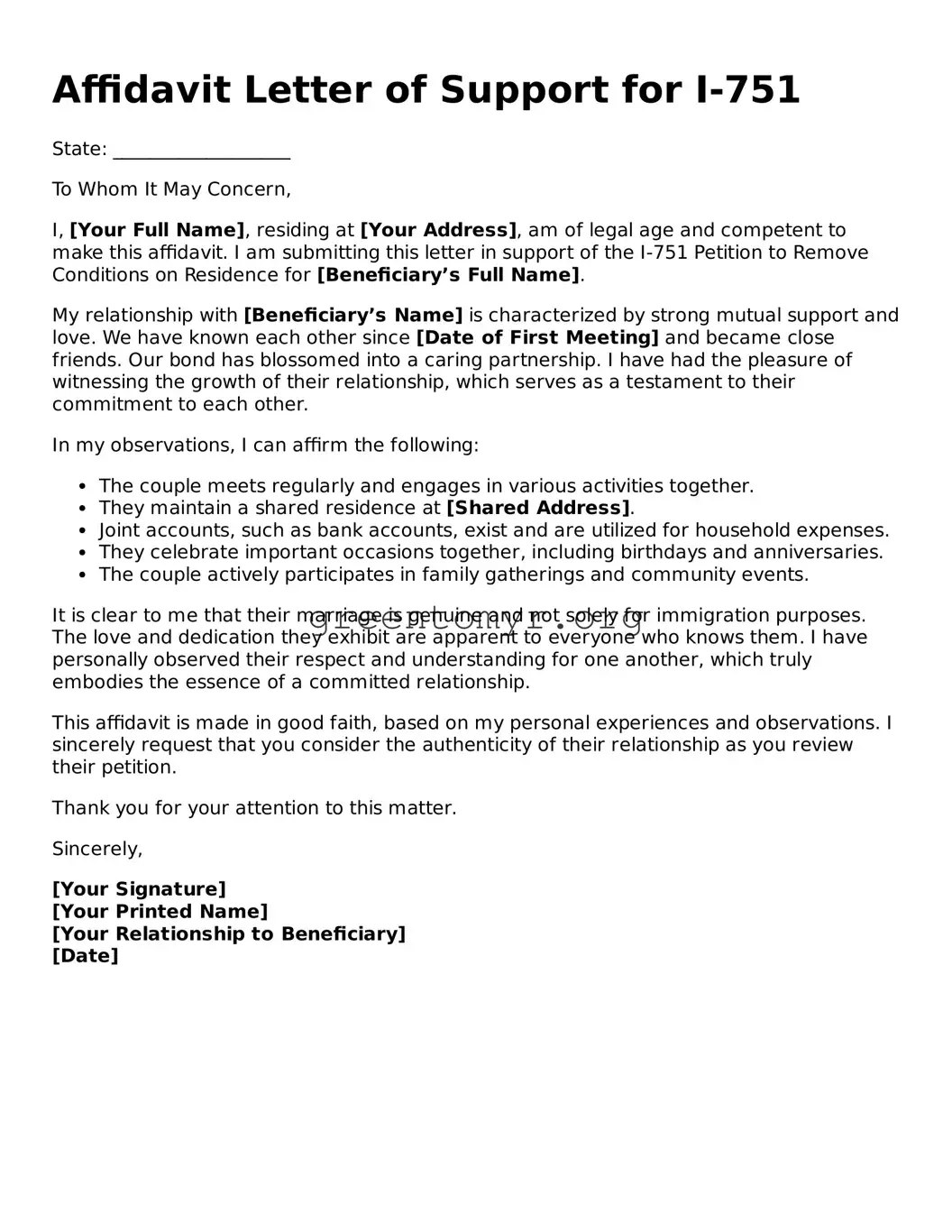Affidavit Letter of Support for I-751
State: ___________________
To Whom It May Concern,
I, [Your Full Name], residing at [Your Address], am of legal age and competent to make this affidavit. I am submitting this letter in support of the I-751 Petition to Remove Conditions on Residence for [Beneficiary’s Full Name].
My relationship with [Beneficiary’s Name] is characterized by strong mutual support and love. We have known each other since [Date of First Meeting] and became close friends. Our bond has blossomed into a caring partnership. I have had the pleasure of witnessing the growth of their relationship, which serves as a testament to their commitment to each other.
In my observations, I can affirm the following:
- The couple meets regularly and engages in various activities together.
- They maintain a shared residence at [Shared Address].
- Joint accounts, such as bank accounts, exist and are utilized for household expenses.
- They celebrate important occasions together, including birthdays and anniversaries.
- The couple actively participates in family gatherings and community events.
It is clear to me that their marriage is genuine and not solely for immigration purposes. The love and dedication they exhibit are apparent to everyone who knows them. I have personally observed their respect and understanding for one another, which truly embodies the essence of a committed relationship.
This affidavit is made in good faith, based on my personal experiences and observations. I sincerely request that you consider the authenticity of their relationship as you review their petition.
Thank you for your attention to this matter.
Sincerely,
[Your Signature]
[Your Printed Name]
[Your Relationship to Beneficiary]
[Date]
